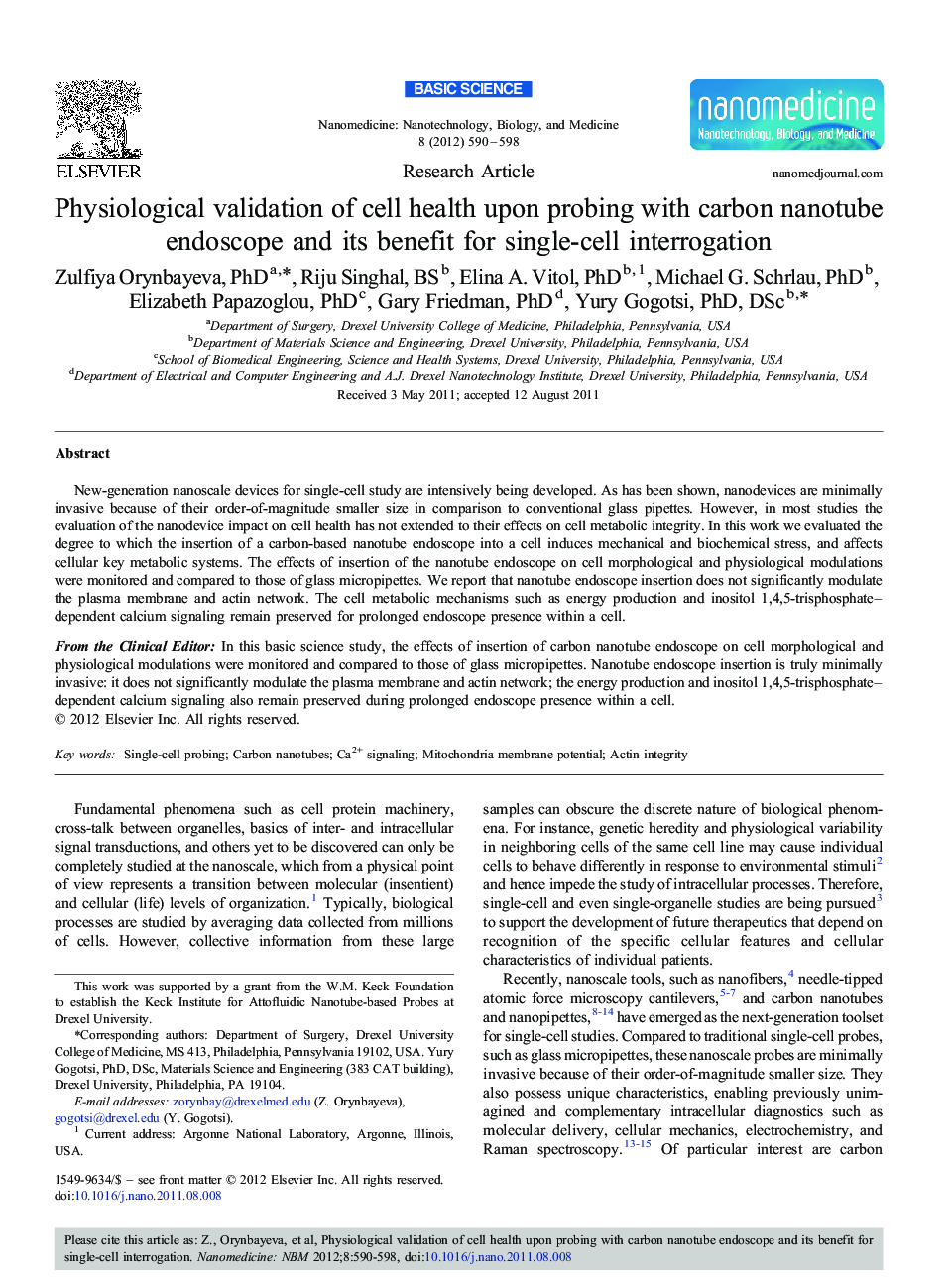| کد مقاله | کد نشریه | سال انتشار | مقاله انگلیسی | نسخه تمام متن |
|---|---|---|---|---|
| 877602 | 911036 | 2012 | 9 صفحه PDF | دانلود رایگان |

New-generation nanoscale devices for single-cell study are intensively being developed. As has been shown, nanodevices are minimally invasive because of their order-of-magnitude smaller size in comparison to conventional glass pipettes. However, in most studies the evaluation of the nanodevice impact on cell health has not extended to their effects on cell metabolic integrity. In this work we evaluated the degree to which the insertion of a carbon-based nanotube endoscope into a cell induces mechanical and biochemical stress, and affects cellular key metabolic systems. The effects of insertion of the nanotube endoscope on cell morphological and physiological modulations were monitored and compared to those of glass micropipettes. We report that nanotube endoscope insertion does not significantly modulate the plasma membrane and actin network. The cell metabolic mechanisms such as energy production and inositol 1,4,5-trisphosphate–dependent calcium signaling remain preserved for prolonged endoscope presence within a cell.From the Clinical EditorIn this basic science study, the effects of insertion of carbon nanotube endoscope on cell morphological and physiological modulations were monitored and compared to those of glass micropipettes. Nanotube endoscope insertion is truly minimally invasive: it does not significantly modulate the plasma membrane and actin network; the energy production and inositol 1,4,5-trisphosphate–dependent calcium signaling also remain preserved during prolonged endoscope presence within a cell.
The carbon nanotube–based endoscope with cylindrical, hollow geometry and flexible, conductive tips enables intracellular probing along with fluid transfer to and from single living cells. In this work we demonstrate that the insertion of probe tips into a cell body does not induce significant mechanical stress or affect cellular key metabolic systems in terms of their structural and functional integrity. Particularly, it is shown that the nanotube endoscope insertion does not significantly modulate the plasma membrane and actin network. The cell metabolic mechanisms such as energy production and IP3-dependent calcium signaling remain preserved for prolonged endoscope presence within a cell. The carbon nanotube endoscope opens a new realm of opportunities for single-cell and single-organelle machinery study, as well as for monitoring local communications between organelles in dynamics.Figure optionsDownload high-quality image (125 K)Download as PowerPoint slide
Journal: Nanomedicine: Nanotechnology, Biology and Medicine - Volume 8, Issue 5, July 2012, Pages 590–598